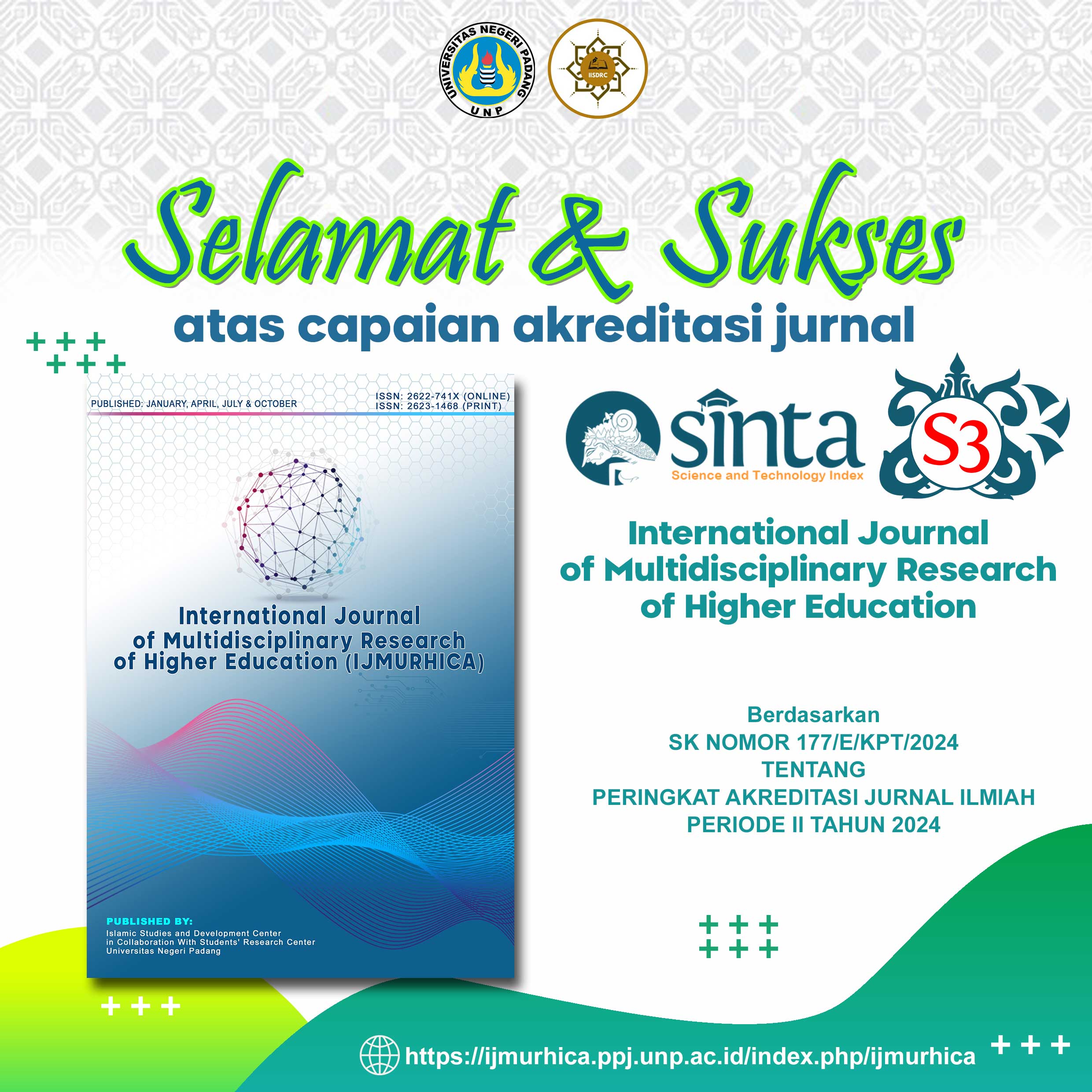Analysis of Intellectual Intelligence in Gifted and Talented Children
DOI:
https://doi.org/10.24036/ijmurhica.v7i4.261Keywords:
Intellectual intelligence, gifted children, talented childrenAbstract
Intellectual intelligence in gifted and talented children refers to very high intellectual abilities that significantly exceed the average population of their age, gifted and talented children generally show exceptional abilities in logical, analytical, and creative thinking, and have the capacity to understand complex and abstract concepts at a younger age. This research aims to analyze the development of intellectual intelligence in gifted and talented children. The main focus of this article is to explore strategies for developing intellectual intelligence in gifted and talented children through targeted and effective educational approaches. This research uses the Systematic Literature Review (SLR) method, the literature search process is carried out using leading databases such as Scopus, Taylor & Francis Online, ERIC, ScienceDirect, Publish or Perish, and Google Scholar, with the keywords “intellectual intelligence gifted student” and “intellectual intelligence of gifted students preschool”. The number of articles analyzed was 25 articles, after the literature was collected, the relevant articles were analyzed using NVIVO 12 Plus and VOSviewer software. The results of document analysis from various countries show that the development of intellectual intelligence in gifted and talented children requires a targeted and effective strategy with four main approaches, namely: differentiation, acceleration programs, enrichment, and holistic approaches. The results of this study are expected to provide in-depth insights to support the optimization of the development of gifted and talented children, as well as provide recommendations to educational institutions to adjust to the diversity of cognitive needs that exist in the classroom.
Downloads
Downloads
Published
How to Cite
Issue
Section
License
Copyright (c) 2024 Reni Lia Diiska, Syafrimen Syafril

This work is licensed under a Creative Commons Attribution-ShareAlike 4.0 International License.






